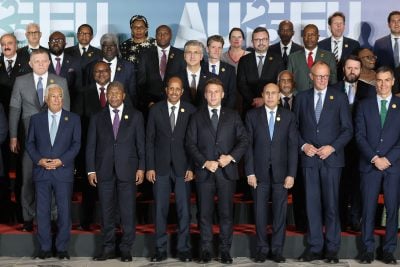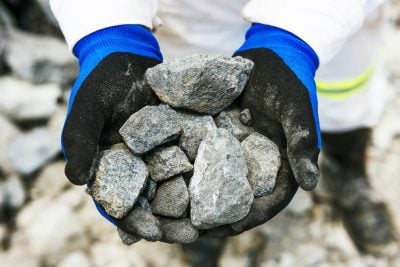Regulation is a hot topic in the corporate board rooms and conferences of Europe as well as the community halls and government offices across Africa. Why? The European Union regulation on deforestation-free products (EUDR), adopted by the European Parliament and Council in April and May this year, means large companies will need to comply with the regulations by December 2024.
Regulation that aims to ensure the European Union no longer imports commodities directly linked to deforestation is to be welcomed. It is an opportunity to ensure that we all play a part in halting and reversing deforestation across production landscapes everywhere.
And we need to acknowledge the role that agricultural commodity development plays as a driver of deforestation, and the impact this has on regional and global climate, as well as on the people and communities who live in and rely on the forests.
Threats to African agriculture
However, agricultural commodities covered by the regulation – cattle, cocoa, coffee, palm oil, soy, wood, rubber, charcoal and printed paper products – are also key economic drivers to many African countries, where up to 25% of GDP comes from agriculture, and sometimes 60% of employment.
Cocoa, for instance, not only serves as a critical source of income but also creates employment opportunities, fostering poverty alleviation in rural regions. The economic impact extends further as cocoa production significantly contributes to the overall growth and export revenues of several countries in West Africa. Moreover, the European Union market represents one of the largest and most lucrative markets for cocoa products.
As Africa’s population grows, predicted to reach 2.5bn by 2050, the pressure on food systems grows along with the need to increase production for export and economic development. Protecting the natural resources of the continent, forests, water and biodiversity, will be essential to mitigate the worst effects of climate change for a continent already vulnerable.
In dialogues in Cameroon and Republic of Congo, Proforest, along with WWF and the Tropical Forest Alliance, heard from producers about some of the other challenges they foresee with the implementation of EUDR on the ground.
- Administrative and legal challenges including, primarily, sustainable land use planning will require the harmonisation of regulations and legal frameworks related to land allocation and utilisation. There is a need for accelerated reforms in areas such as land law and forestry to ensure a more conducive environment for sustainable practices.
- Productivity challenges are particularly prominent in cocoa and coffee production, primarily affecting small-scale producers. Enhancing productivity per hectare becomes crucial to meet market demands while adhering to sustainability requirements.
- Insufficient financial, material, and human resources further hinder the implementation of sustainability protocols. The costs associated with adopting and complying with sustainability measures pose a burden, particularly for smaller producers who lack the necessary resources.
- The regulation may serve to clean specific European agri-commodity supply chains, while diverting commodities associated with deforestation to other export markets. Addressing deforestation leakage requires a holistic approach that considers the interconnectedness of supply chains and the global impact of market-driven decisions.
- A lack of synergy between various administrative bodies involved in commodity production and initiatives will require coordination and collaboration amongst these bodies to streamline efforts and ensure effective implementation of sustainable practices.
We need to work together to agree on a common goal. We need to take a collective approach because no single stakeholder has the solution for addressing deforestation in commodity supply chains.
Well-established multi-stakeholder platforms like the Africa Sustainable Commodities Initiative, a commitment to responsible production by 10 countries in West and Central Africa, can provide a space for collaboration and conversation, as well as a channel for action and investment.
With EUDR, EU governments need to acknowledge and build upon the efforts already undertaken by farmers across Africa, such as cocoa agroforestry systems in Central Africa. Companies should also look for opportunities to collaborate with communities and organisations in producer countries to build capacity in sustainable farming practices, quality improvement, and compliance with international standards.
Simplifying the due diligence procedure is another avenue to reduce complexity and provide clear guidelines so that buyers can more easily assess and mitigate the risk of deforestation in their supply chains, whilst recognising and rewarding producers who demonstrate a commitment to sustainability.
If the EUDR does not work for the farmer in Africa, it doesn’t work for any of us.
Want to continue reading? Subscribe today.
You've read all your free articles for this month! Subscribe now to enjoy full access to our content.
Digital Monthly
£8.00 / month
Receive full unlimited access to our articles, opinions, podcasts and more.
Digital Yearly
£70.00 / year
Our best value offer - save £26 and gain access to all of our digital content for an entire year!

 Sign in with Google
Sign in with Google 



